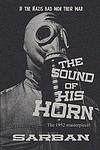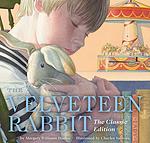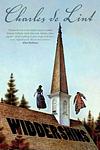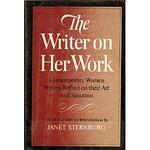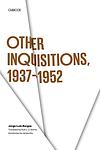The Greatest Argentinian, Unknown Books of All Time
Click to learn how this list is calculated.
This list represents a comprehensive and trusted collection of the greatest books. Developed through a specialized algorithm, it brings together 300 'best of' book lists to form a definitive guide to the world's most acclaimed books. For those interested in how these books are chosen, additional details can be found on the rankings page.
Genres
Countries
Date Range
Reading Statistics
Click the button below to see how many of these books you've read!
Download
If you're interested in downloading this list as a CSV file for use in a spreadsheet application, you can easily do so by clicking the button below. Please note that to ensure a manageable file size and faster download, the CSV will include details for only the first 500 books.
Download-
1. Fictions by Jorge Luis Borges
"Collected Fiction" is a compilation of stories by a renowned author that takes readers on a journey through a world of philosophical paradoxes, intellectual humor, and fantastical realities. The book features a range of narratives, from complex, multi-layered tales of labyrinths and detective investigations, to metaphysical explorations of infinity and the nature of identity. It offers an immersive and thought-provoking reading experience, blurring the boundaries between reality and fiction, past and present, and the self and the universe.
-
2. Epic of Gilgamesh by Unknown
This ancient Mesopotamian epic follows the story of Gilgamesh, a demigod king who rules over the city of Uruk. Unhappy with his reign, the gods create a wild man named Enkidu to challenge him. However, Gilgamesh and Enkidu become close friends and embark on several adventures together, including defeating the demon Humbaba and killing the Bull of Heaven. After Enkidu's death, Gilgamesh becomes obsessed with finding immortality, leading him on a journey to meet Utnapishtim, the only human who has been granted eternal life. The narrative explores themes of friendship, mortality, and the meaning of life.
-
3. Labyrinths by Jorge Luis Borges
"Labyrinths" is a collection of short stories and essays that explore complex themes of infinity, parallel universes, and the blurred lines between reality and illusion. The narratives often feature protagonists who are scholars or librarians, trapped in surreal, metaphysical landscapes. The author's unique writing style combines elements of magical realism, philosophy, and detective fiction, creating an intricate web of narratives that challenge the reader's perception of reality and fiction.
-
4. Beowulf by Unknown
"Beowulf" is an Old English epic poem that tells the story of the eponymous hero, a Geatish warrior who comes to the aid of Hrothgar, the king of the Danes, whose mead hall is under attack by a monster known as Grendel. Beowulf fights and defeats Grendel and his mother, earning the gratitude and friendship of Hrothgar. Later in his life, Beowulf becomes king of the Geats and faces his final battle with a deadly dragon. The poem explores themes of heroism, fate, and mortality, and is considered one of the most important works of Old English literature.
-
5. Hopscotch by Julio Cortázar
This avant-garde novel invites readers into a non-linear narrative that can be read in two different orders, following the life of Horacio Oliveira, an Argentine intellectual living in Paris with his lover, La Maga. The story explores philosophical and metaphysical themes, delving into the nature of reality and the human condition, while also examining the struggles of intellectual and emotional life. The second part of the novel takes place in Buenos Aires, where Horacio returns after La Maga disappears, and where he grapples with his past, his identity, and his place in the world.
-
6. Night by Elie Wiesel
This book is a memoir of the author's experiences during the Holocaust, specifically in the Auschwitz and Buchenwald concentration camps. The narrative focuses on the relationship between a father and son under the most extreme circumstances, the loss of faith in God, humanity, and in each other, and the horrifying reality of the systematic genocide of six million Jews during World War II. The book is a poignant and stark examination of the depths of human evil and the enduring power of hope and survival.
-
7. Facundo by Domingo Faustino Sarmiento
"Facundo" is a socio-political critique and historical account of Argentina during the first half of the 19th century. The book examines the life of the gaucho, Facundo Quiroga, who becomes a powerful and ruthless warlord, illustrating the destructive effects of caudillismo (military dictatorship) on society. The author uses Quiroga's life to delve into broader themes such as the struggle between civilization and barbarism, the need for education, and the dangers of unchecked political power.
-
8. Mythology by Edith Hamilton
This book is a comprehensive guide to ancient Greek, Roman, and Norse mythologies, providing detailed accounts of various gods, goddesses, heroes, and other mythological creatures. It includes well-known stories like the Odyssey and the Iliad, along with lesser-known tales, and analyzes their significance in the cultures they originated from. The book also delves into the origins of these myths and their influence on later civilizations, offering readers a deep understanding of ancient cultures and their belief systems.
-
9. Don Segundo Sombra by Ricardo Güiraldes
This classic Argentine novel is a coming-of-age story set in the Pampas, focusing on the life of a young orphan who finds guidance and mentorship under the wing of a seasoned gaucho named Segundo Sombra. Through his experiences in the vast landscapes of rural Argentina, the protagonist learns the values of courage, responsibility, and freedom, embodying the gaucho spirit. The narrative, rich in poetic imagery and symbolism, explores themes of identity, tradition, and the passage into adulthood, offering a deep reflection on the essence of Argentine culture and the timeless bond between man and nature.
-
10. Los Siete Locos by Roberto Arlt
"Los Siete Locos" is a complex and dark novel set in the 1920s in Buenos Aires. The story revolves around a man who, disillusioned with his mundane life and the corruption he sees around him, becomes involved with a group of anarchists who plan to overthrow the government. The protagonist is drawn into a world of madness, conspiracy, and philosophical debate, as he grapples with his own sanity and the morality of his actions. The book explores themes of existentialism, societal decay, and the blurred line between sanity and insanity.
-
11. Martín Fierro by José Hernández
"Martín Fierro" is an epic poem that tells the story of a gaucho, or Argentine cowboy, who is forcibly recruited to fight against indigenous tribes. He returns to find his home destroyed and his family gone, leading him to become an outlaw. The narrative explores themes of Argentine identity, the conflict between civilization and nature, and the injustices suffered by the gauchos. It is recognized as a foundational work of Argentine literature.
-
12. Legend by David Gemmell
In a post-apocalyptic world, an aging warrior known as Druss comes out of retirement to defend his homeland from invading hordes. Despite his advanced age, he is still a formidable fighter and is revered as a living legend. As he prepares for a seemingly impossible battle, he must confront not only his enemies but also his own personal demons and the specter of his own mortality. The novel is a compelling blend of action, adventure, and introspection, exploring themes of heroism, honor, and the human capacity for courage in the face of overwhelming odds.
-
13. The Sound Of His Horn by Sarban
"The Sound of His Horn" is a dystopian science fiction novel set in a future where the Nazis have won World War II. The story follows Alan Querdilion, a British prisoner of war who wakes up in a bizarre alternate reality ruled by a cruel and sadistic Nazi regime. As he navigates this nightmarish world, Querdilion must confront his own survival instincts and grapple with the moral implications of his actions. With its haunting atmosphere and thought-provoking exploration of power and humanity, the novel offers a chilling and unsettling reflection on the consequences of totalitarianism.
-
14. Kiss of the Spider Woman by Manuel Puig
"Kiss of the Spider Woman" is a novel set in an Argentine prison where two cellmates, a gay window dresser and a political revolutionary, share stories to pass the time. The window dresser recounts various films he's seen, which often involve strong, glamorous women, while the revolutionary shares his political ideologies. As they spend time together, they form an unlikely bond, exploring themes of sexuality, oppression, and the power of storytelling.
-
15. The Velveteen Rabbit by Margery Williams
"The Velveteen Rabbit" is a heartwarming children's book about a stuffed rabbit who longs to become real. Through his encounters with other toys and his friendship with a young boy, the rabbit learns about love, loyalty, and the true meaning of being alive. With beautiful illustrations and a touching narrative, this timeless tale teaches valuable lessons about the power of imagination and the transformative nature of love.
-
16. Widdershins by G. Oliver Onions
"Widdershins" is a gripping psychological thriller that follows the life of a troubled young woman named Alice. Haunted by a traumatic childhood event, Alice finds herself drawn into a mysterious world of dark secrets and supernatural occurrences. As she delves deeper into the enigmatic past of her family, Alice must confront her own demons and unravel the truth before it consumes her. With its atmospheric setting and complex characters, "Widdershins" is a chilling tale of suspense and self-discovery.
-
17. The Last Bouquet by Marjorie Bowen
"The Last Bouquet" by Marjorie Bowen is a captivating historical novel set in 18th-century France. The story follows a young woman named Genevieve, who finds herself caught in the midst of the French Revolution. As chaos and violence engulf the nation, Genevieve's life takes a dramatic turn when she becomes entangled with a group of revolutionaries. Faced with difficult choices and dangerous secrets, she must navigate a treacherous path to protect her loved ones and find her own freedom. Bowen's vivid storytelling and rich historical detail bring this tumultuous period to life, offering a compelling tale of love, sacrifice, and resilience.
-
18. The Writer on Her Work by Janet Sternburg
"The Writer on Her Work" is a collection of essays by various female authors who discuss their experiences, challenges, and perspectives on writing. The book explores the complexities of being a woman in the literary world, shedding light on topics such as gender bias, the struggle for recognition, and the balance between personal life and professional aspirations. It provides a unique insight into the creative process, revealing how these women navigate their craft amidst societal expectations and personal obstacles.
-
19. Betrayed by Rita Hayworth by Manuel Puig
The novel explores the life of a young boy growing up in a small town in Argentina during the 1930s and 1940s. It is a coming-of-age story that uses a unique narrative structure, incorporating a mix of dialogues, inner thoughts, and film scripts to depict the protagonist's life. The boy's obsession with Hollywood films and glamorous actresses, particularly Rita Hayworth, serves as an escape from his oppressive environment and shapes his understanding of the world. The book also delves into themes of sexuality, identity, and the impact of popular culture.
-
20. Los lanzallamas by Roberto Arlt
"Los lanzallamas" is a novel set in Buenos Aires in the 1920s, revolving around the lives of a group of characters who are marginalized by society. The protagonist, a failed inventor turned anarchist, is manipulated into participating in a plot to overthrow the government and establish a new social order. The plot fails, leading to tragic consequences for the characters involved. The novel explores themes of alienation, disillusionment, and the struggle for individual freedom in a repressive society.
-
21. Labyrinths by Christopher Okigbo
"Labyrinths" is a collection of poetry that delves into the complexities of identity, love, and the human experience. Through vivid imagery and lyrical language, the poems explore themes of cultural heritage, spirituality, and the impact of colonialism. With a profound sense of introspection, the author invites readers on a journey through the labyrinth of his mind, offering a glimpse into the depths of his emotions and the intricate web of his thoughts.
-
22. Heartbreak Tango by Manuel Puig
"Heartbreak Tango" is a tragicomedy that explores the intertwined lives of the inhabitants of a small town in Argentina. The narrative revolves around the life and death of a charismatic but flawed young man, Juan Carlos, who has relationships with multiple women, each of whom remember him differently. The story is told through a series of letters, diary entries, police reports, and gossip, presenting a multifaceted view of Juan Carlos and the impact he had on those around him. The novel also critiques the shallowness and hypocrisy of society, particularly in its treatment of women.
-
23. December Bride by Sam Hanna Bell
"December Bride" is a poignant and captivating novel set in rural Northern Ireland during the early 20th century. The story follows the life of a young woman named Sarah, who finds herself caught between tradition and her own desires. As she navigates the complexities of love, family, and societal expectations, Sarah must make difficult choices that will shape her future. With its vivid descriptions and richly drawn characters, this book explores themes of identity, sacrifice, and the enduring power of love.
-
24. Black List, Section H by Francis Stuart
"Black List, Section H" is a gripping and thought-provoking novel that delves into the complex themes of identity, loyalty, and the consequences of war. Set during World War II, the story follows a group of individuals who find themselves entangled in a web of espionage and betrayal. As they navigate the treacherous landscape of Nazi-occupied Europe, their loyalties are tested, and they must confront the moral dilemmas that arise when faced with impossible choices. With its rich character development and atmospheric setting, this book offers a compelling exploration of the human spirit in the face of adversity.
-
25. Other Inquisitions by Jorge Luis Borges
"Other Inquisitions" is a collection of essays that explore a wide range of topics including literature, philosophy, and metaphysics. The author uses his profound knowledge of world literature and history to delve into complex subjects such as time, identity, and infinity. He also provides insightful commentary on various authors and their works, reflecting on their influence and significance. The book is marked by the author's characteristic style of blending fiction, reality, and scholarly analysis, making it a thought-provoking read.
Reading Statistics
Click the button below to see how many of these books you've read!
Download
If you're interested in downloading this list as a CSV file for use in a spreadsheet application, you can easily do so by clicking the button below. Please note that to ensure a manageable file size and faster download, the CSV will include details for only the first 500 books.
Download











